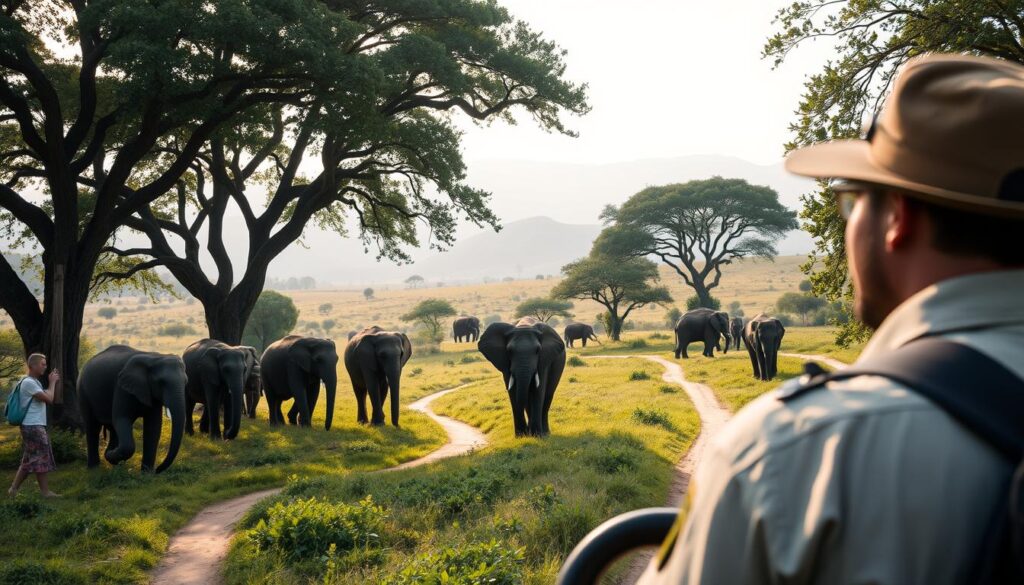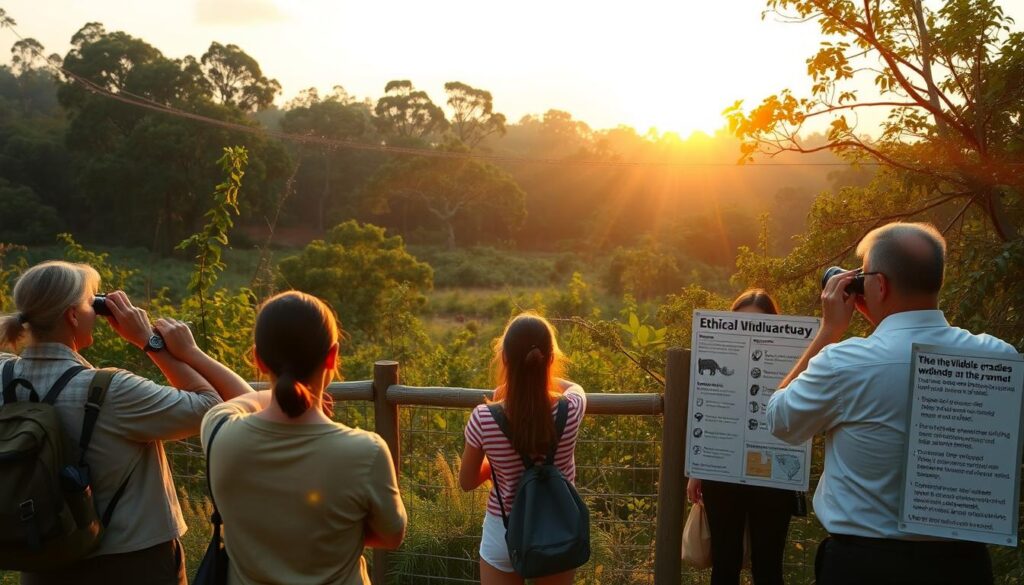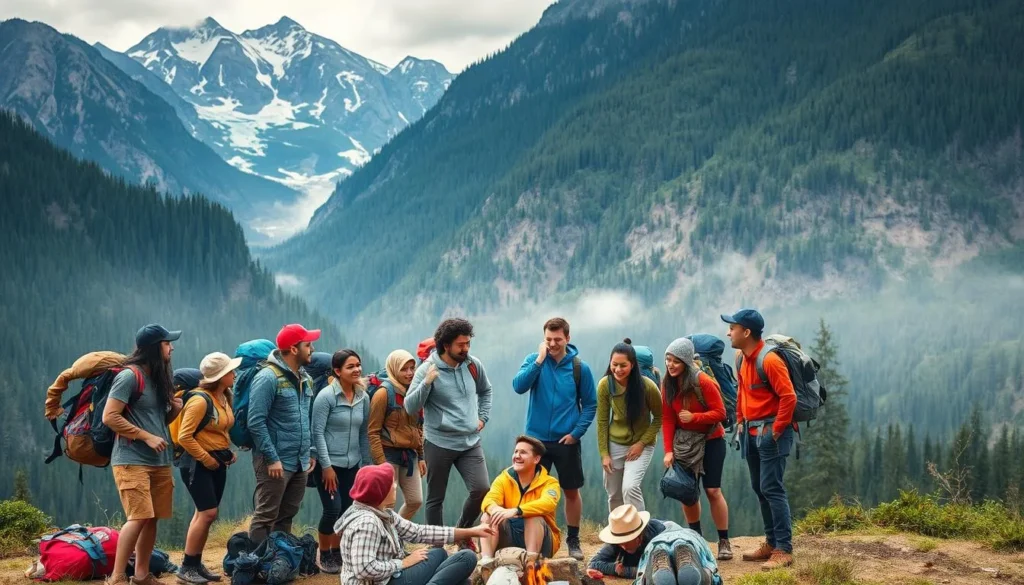Endangered Species acts to shield natural environments and generate economic growth for local communities. Multiple locations all across the world including Costa Rica and Kurdistan together with Senegal demonstrate their dedication to sustainable tourism development. The environmental preservation efforts establish incentives for local communities to grow stronger simultaneously with environmental conservation.
The practice of ethical travel operates through protections of animal welfare together with forest conservation efforts. The architectural fusion of Costa Rica eco-lodges with nature allows guests to witness wildlife in its natural habitat without damaging the surroundings. A dual approach of communal development projects demonstrates that tourism operations in Senegal and Kurdistan can achieve beneficial outcomes.
Selecting ethical travel decisions will enable you to create beneficial social effects. Protection of animals through these experiences leads to employment creation and cultural conservation. Enough evidence shows how nature’s relationship with tourists continues to grow thus emphasizing the need for purposeful decision-making.
Key Takeaways
- The combination of environmental protection and economic support of local populations is achieved through responsible travel activities.
- The eco-lodge accommodations in Costa Rica exist harmoniously within their natural environment to provide sustainable tourist destinations.
- People in both Senegal and Kurdistan benefit from neighborhood-based development projects that grant community members power.
- The primary concern of ethical tourism includes both animal protection and the prevention of environmental damage in ecosystems.
- Endangered Species When selecting sustainable ethical choices during travel people can generate positive outcomes.
Introduction to Ethical Wildlife Tourism
The practice of responsible travel involves taking decisions that create advantages for human beings and the environment. Got ethnical travel means preserving natural habitats without harm along with activities that create awareness. Your travel experience will generate beneficial outcomes toward both nature and native communities through this method.

The main concepts of responsible tourism must be understood by all.
Ecotourism maintains natural habitats during all stages of development to provide substantial value to visitors. Travelers can have sustainable interactions with nature through activities like wildlife viewing and birdwatching under this practice. These educational activities encourage visitors through inspiration and knowledge to strengthen their environmental awareness.
Key principles of ecotourism include:
Endangered Species Minimizing negative environmental impacts.
Supporting local economies and communities.
The active promotion of education together with knowledge advancement about natural ecosystems represents a crucial aspect of ecotourism practice.
The Role of Conservation in Wildlife Tourism
The success of ethical travel depends entirely on conservation programs. Tour companies that establish ethical foundations set essential standards to verify that their operations follow best practice guidelines. The operators deliver educational curricula to show travelers why it is vital to safeguard natural habitats.
Guided tours usually offer ecosystem lessons to provide visitors fundamental understanding of ecosystem preservation responsibilities. The joint teamwork of operators and tourists maintains tourism as a positive influence on environmental preservation.
Traveling with ethical practices creates lasting benefits for sustainability because it advances a sustainable future. The services protect natural ecosystems while building essential bond between travelers and Earth’s environment.
Supporting Local Communities and Sustainable Practices
Local communities act as the primary support structure for carrying out sustainable travel projects. Local involvement guarantees environmental sustainability practices both in their establishment and their continued existence through time. Protection of these areas occurs through interactions between visitors who actively support local development cycles.
Community Involvement in Conservation Efforts
Natural habitats receive their primary protection from communities worldwide. The implementation of eco-friendly projects by these groups keeps their environment both sustainable and prosperous. People from the local communities oversee eco-lodges and guided expeditions as part of their management to protect ecosystem biodiversity and generate economic benefits.
General population members and visitors receive educational training about sustainable practices as part of these initiatives. Local residents maintain stronger attachment to their environment because they share information regarding nature which extends their dedication to protecting it.
Economic and Social Benefits for Local Areas
Environmental sustainable travel enables the economic growth of native communities and neighborhoods. The tours that tourists take toward community-directed initiatives bring direct benefits to local businesses while providing employment opportunities for residents. Local residents receive financial aid through this boost which allows them to enhance both their infrastructure systems and their community services.
The economic initiatives support cultural preservation efforts in addition to financial benefits. Tourists access genuine cultural connections during their visits because local populations beam with happiness to showcase their heritage. The relationship of exchange strengthens both the enjoyment of travel activities and leads to long-term community development.
The inclusiveness of community needs becomes crucial for travelers who wish to make their ventures create enduring benefits. Protecting the environment through this approach enables local groups to achieve positive results while remaining empowered.
The tourism industry targeting wildlife protection aims to conserve endangered species

Travelers in the modern world have the ability to shield ecosystems while experiencing distinctive experiences. The method of wildlife conservation tourism protects natural areas by combining ecological protection efforts with enriching adventure activities. Travelers create two-fold advantages when they protect nature during their exploration experiences.
Defining Wildlife Conservation Tourism
Hardcore wildlife conservation tourism surpasses simple animal sightings because it involves systematic preservation of animals and their homes. Organized steps exist to protect both wildlife populations and their living territories. Participation in these programs enables visitors to assist meaningful wildlife conservation work.
Traveling this way helps to reduce adverse environmental consequences. Visitors acquire knowledge about natural space protection when they visit these sites. Educational programs along with guided tours provide travelers the chance to increase their comprehension of visited ecosystems.
Real-World Case Studies and Success Stories
A remarkable program for wild tortoise recovery can be found in Senegal. The project implemented this plan to rebuild certain animal populations and brought local people into the conservation effort. People viewing these protection initiatives can personally experience conservation practices which illustrates their vital importance to visitors.
The conservation of wildlife habitats at Costa Rica has been a major success. These protected areas present increased biodiversity levels because of established visitor management systems. Protection of these habitats remains long-term because human interference stays minimal.
Travel responsibility produces nature conservation together with inspired deep conservation awareness.
The targeted conservation methods establish new ways for humans to interact with nature based on th
| Practice | Benefit |
|---|---|
| Avoid flash photography | Reduces stress on animals |
| Stay on designated trails | Protects ecosystems |
| Maintain a safe distance | Preserves natural behavior |
| Choose ethical operators | Ensures responsible practices |
ese successful examples. The selection of ethical travel choices by visitors serves as an essential defense to protect Earth for the upcoming generations.
Conservation of animal welfare must align with unforgettable wildlife encounters.
Responsible travel calls for striking an equilibrium between animal protection and generating memorable memories. Respect for natural environments exists through ethical operational procedures in tourism. Travelers who adhere to established guidelines have the chance to discover unusual destinations through responsible means.
Best Practices for Animal Welfare During Tours
Tourists must establish animal welfare as their highest priority. A useful method for tour safety involves turning off flash photography because it creates disturbances for animals. Every person visiting an outdoor area must respect designated trails because this practice keeps ecosystems safe from unintentional damage.
An important tour practice requires keeping adequate space between humans and animals. Both the stress levels of animals and their ability to behave naturally are safeguarded when proper distances of separation are maintained. Guides who receive training about ethical procedures offer critical information together with protective measures for animal welfare.
How to Avoid Exploitative Interactions
Any exploitative encounter with animals or ecosystems leads to negative consequences for all involved. It is essential to stay away from activities that allow contact with wildlife species because such encounters cause stress to animals and shift their behavioral patterns. Herbal and pharmaceutical remedies for animal health problems should not interfere with natural animal behaviors because such disruptions cause harm to wildlife well-being.
Travelers can increase responsible behavior by selecting operators who demonstrate clear proof of ethical values. The focus of these companies lies in animal welfare while simultaneously teaching visitors about the necessity of maintaining natural boundary respect.

Environmental and Economic Benefits
When tourists practice responsible behavior they create major environmental and economic advantages that affect both scenarios. Eco-lodges in Costa Rica achieve both rainforest preservation and they generate employment opportunities for the residents. Natural areas will stay protected through this dual effect which additionally supports the economic development of local populations.
The revenue from tourism operations supplies resources that finance preservation efforts. Users of these initiatives regain degraded habitats while protecting endangered natural species. The money spent by travelers when visiting such areas directly supports these conservation efforts so their vacations become more significant.
Preventing Negative Impacts on Habitats
Visitor management improvements serve as the essential factor for protecting natural landscapes. The rules of staying within marked paths and reducing maximum group numbers in protected conservations serve to prevent environmental damage. The practices help maintain ecosystems in their present state for coming generations.
The educational process focusing on sustainability maintains its crucial position. Tour operators disclose information about local ecosystems to inform visitors about natural boundary respect. Sustainable behavior together with a stronger bond to nature result from this strategy.
Designated Trails with proper respect for natural boundaries should be the only paths which hikers should follow.
Maintaining our presence within designated trails represents an easy method to defend ecosystem habitats. The designated trail system decreases the harm done to sensitive habitats while shielding native species from harm. It is important to pay attention to all posted signs while staying away from forbidden zones.
Natural boundaries need equal respect from visitors. Position at least 50 meters away from animals so their behaviors stay undisturbed. By keeping yourself at a distance you accomplish two objectives by maintaining their safety as well as creating a heightened observational opportunity that shows you natural animal behavior.
| Practice | Benefit |
|---|---|
| Stay on designated trails | Protects delicate ecosystems |
| Limit group sizes | Reduces environmental stress |
| Support local initiatives | Boosts conservation funding |
| Educate visitors | Promotes sustainable behavior |
Choosing Operators with Strong Ethical Credentials
Owning suitable tour operators constitutes a vital step to achieve ethical travel. Search among companies which show actual dedication toward sustainable operations. Review their operations by checking if they have received any certifications that display their natural resource protections.
Inquire about their established guidelines that protect animals in addition to environmental conservation. Operators who maintain a strong reputation will provide clear information about their procedures and put the welfare of ecosystems on display first.
Knowledge about travel plays a critical role before leaving and during the entire journey.
Travel with responsibility heavily depends on educational knowledge. Research all destinations you plan to visit before your scheduled departure. Obtain knowledge regarding local ecosystems together with cultural norms while understanding the environmental interaction guidelines.
Unlimited knowledge acquisition should stay your priority while you travel. Join guided tours and read both educational materials and participate in group programs. Your research about a location enhances your overall experience as well as your capacity to take responsible travel choices.
When traveling one needs to maintain awareness about the effects their actions create on the places they explore.
Following this approach will allow you to support the expanding movement that promotes ethical travel practices. Today’s decisions will act as a preserving force for natural resources which will establish a beneficial heritage for upcoming generations.

Conclusion
The act of traveling provides opportunities for enduring positive changes. Sustainability plays a critical role in making sure that exploration of nature remains protected and valuable during travel activities. Ethical procedures represent an essential requirement to protect our planet which we must obey for the sake of preserving the environment for the future of humanity.
People need to understand the complete effects their choices will have in life. Eco-friendly operator selection combined with boundary respect form the foundation for support of conservation projects. The combination of these practices both protects natural ecosystems while simultaneously raising the importance of each traveling experience.
We must welcome both the necessity and value of conducting travel with responsibility. The implementation of ethical principles makes it possible to produce trips that aid in building a better planet. At this point we stand ready to implement several beneficial environmental and social improvements.
FAQ
What is ethical wildlife tourism?
Activities under ethical wildlife tourism ensure protection of animals together with their habitats while benefiting nearby communities. Visitors can enjoy meaningful encounters without damaging the natural habitat because of proper arrangements.
What roles does responsible travel play to benefit the native communities?
When people practice tourism responsibly it enables their local areas to make money through practices that use renewable resources. Through community involvement in conservation activities the development of both social and cultural growth becomes possible.
Tour operators must follow which practices to maintain animal welfare standards throughout tours?
The best conduct involves both keeping distance from animals while selecting tour operators dedicated to good practices and maintaining respectful behavior towards animals in their natural habitat. The activities must never disturb habitat environments and species members should remain unstressed during the process.
Tourists need to implement what measures to alleviate damage on ecosystems.
Mature visitors contribute to lower impacts through trail-bound activities and waste control as well as business backing of sustainable tour operators. Understanding the local environment beforehand will enable tourists to select responsible options.
I need to identify key characteristics I should evaluate before selecting a wildlife tour operator.
Tourists should select operators who demonstrate solid ethical practices through reputable independent organization certifications. Operate only with tour operators who put animal well-being first and take part in habitat preservation while attaining positive evaluations from past clients.
The role of wildlife tourism efforts in protecting natural resources becomes the focus of this question.
Tourism operates to protect wildlife species through joint initiatives between conservation programs and through scientific research into endangered creatures and enhanced species awareness. When selecting ethical operators people directly help preserve habitats while securing biodiversity preservation.
Education plays what role in maintaining ethical standards of wildlife tourism?
Tourists who receive proper educational programs develop an understanding about preserving naturalhabitats together with their function in wildlife preservation. The knowledge obtained through education helps tourists choose decisions that secure the success of animals and communities.



